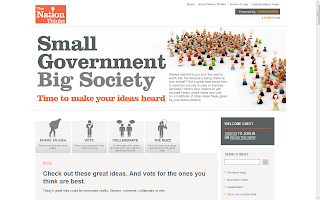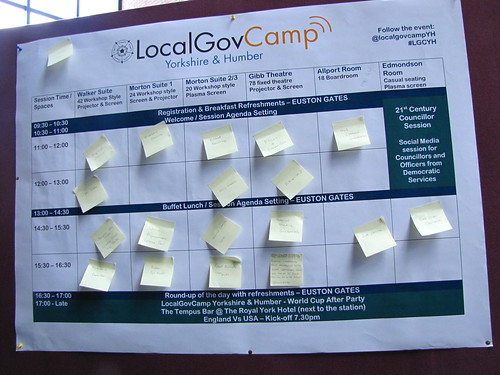>My arrival in local government was more by accident than design. After finishing my History degree I decided I wanted to throw myself into serving other people and help rebuild war-torn countries and work in international development.
So I did an MA at York’s Post-War Reconstruction and Development Unit and that included great discussions with various professionals on the course as well as those teaching us. We went on a group research trip to Lebanon (during the Parliamentary sit-in) and I researched my dissertation in Sierra Leone.
It was a fantastic year. The people I met and the discussions we had offered an incredible opportunity to learn as well as to reflect that, again, most good practice is effectively sound theology (I have a number of partially completed blog posts exploring this which I will get round to completing, one day).
However, by the end of it I had reached two personal conclusions:
1 – that the most inspirational people I met, the people whose jobs I wanted to emulate, were those who had lived through the conflicts and were rebuilding their country for their families with an understanding of language, culture, food, weather, etc that would always be difficult for me to acquire.
2 – that I had very little other than youthful enthusiasm and academic training to offer a post-conflict situation.
That is not to criticise those who work for the aid and development sector, just to say that for me it wasn’t the right moment. But I still wanted to pursue something akin to the work of international development but in a British context. And so I ended up on the graduate scheme in Hull.
I’d argue that in our wealthy country our lead development actors are found in the local public sector agencies. I have a lot of love for a system that is not without its flaws but which tries to recognise local concerns whilst applying national policy in a coordinated fashion.
I’d also argue that for development will always struggle to take root and produce national improvements for a country if competent and effective local administration isn’t sat at the table talking about how to coordinate programmes and identify priorities.
My dissertation considered the ‘Peace Gap’ between elite ideas of what makes peace and the reality for those who live in places that are still recovering from conflict. We spend a lot of time and money and effort with national governance – getting countries to a place where they can trade internationally and receive delegations. At the same time international NGOs work at a local level to meet the most pressing needs of a community. And both of those things are brilliant because they will help to transform lives.
We bypass the bit in the middle at our peril and it’s often identified as being the least effective bit of the jigsaw because of corruption or lack of skill. ‘Good governance’ is a much discussed phrase but does the focus on national governments and democracy overlook the need for all sections of a public service to be effective?
I only have fairly vague ideas about what my career might look like but I’ve been lucky enough to study for an MSc in Public Administration whilst in Hull and I have this hope of bringing the two worlds together. At the end of my MA I didn’t have anything particularly special to offer but perhaps a grounding in international development and local public administration can prove useful? Whether that’s true or not is a question to be answered in a few years – 2 years of experience is not enough to provide credibility and besides, I’m quite excited by the potential waiting to be unlocked within local government.
So, what has that got to do with Freetown?
Well, Hull is twinned with Freetown and has been for 30 years. Last Autumn a delegation from Hull visited Sierra Leone to look at how we could support Freetown City Council in delivering a waste strategy for the city and then we got some funding from the Commonwealth & Local Government Forum to do it.
Which means four of us are heading to Sierra Leone for a week to begin the first phase of the project – the evidence gathering. Our brief is to look at procurement, contract management, asset management and performance monitoring within the council. The goal is to start to put into place a waste strategy for the city but to get there we need to make sure the right foundations are there. Part of that is talking to Freetown City Council about their role at the hub of various efforts at tackling waste, water and sanitation.
Earlier this year the European Union provided 6 million Euros to organisations wanting to tackle these topics in Freetown. That’s a lot of capital money that will be applied to the work that Freetown City Council is trying to achieve. Obviously it is vital that whatever is done includes the council, and doesn’t take place full of good intentions but ultimately completely disconnected from any strategy the council may have.
Which is brilliant really.
This was meant to be sent from Heathrow before we left but sadly didn’t get a chance to post it! So, we’ve been here a couple of days already.


